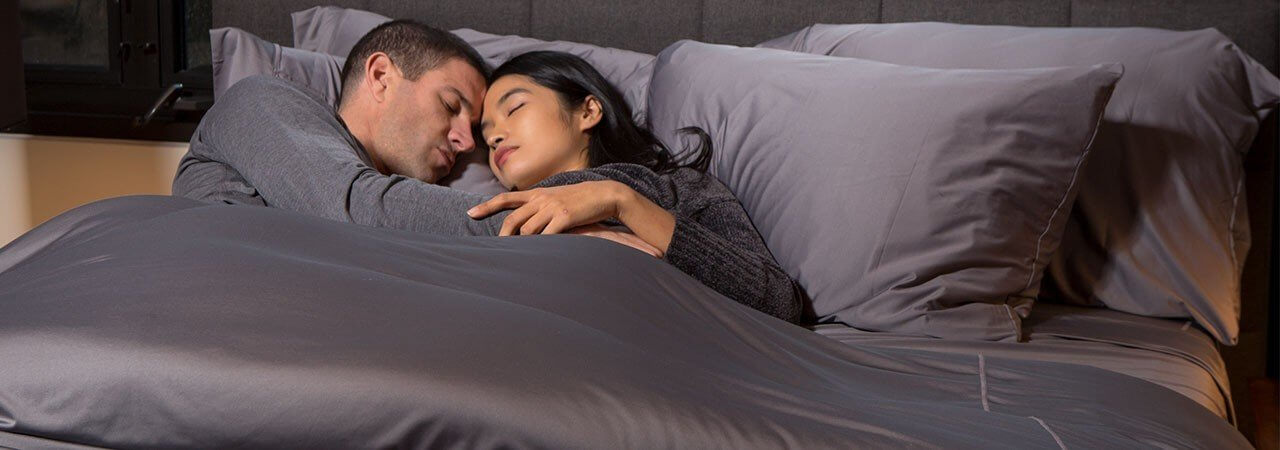A quality night's rest can be hard to come by, especially if you're sleeping with a partner. Now, we're not referring to "sleeping together." That's a whole different topic. What we are talking about is snoozing alongside your significant other. Getting 7 to 8 hours of slumber can be quite the obstacle for both parties due to annoying sleep habits — e.g. snoring, cover stealing, sleep talking, etc. With all of these potential disturbances, why do we even sleep together in the first place, and would it be better to sleep alone?
Why Do We Sleep Together?
In 2011, a team of archaeologists unearthed the world's oldest bed in South Africa. Dated at 77,000 years old, the bed was made of woven reeds and rushes with a layer of insect repelling leaves as its sheet. The spacious 21.5 square foot bed was a generous 12 inches deep and big enough for a family and some livestock. Since then, sleeping arrangements have changed with the needs of the times. 
The Pros and Cons of Sleeping Together
When it comes to sleeping with your partner or spouse, it does have its benefits, both physical and psychological. One study found that men and women perceived a better-quality slumber when they snoozed together. Researchers attributed this perceived improvement to the love and support couples receive in a relationship. Cuddling has been shown to ease the body and mind and can be a very important nighttime ritual. The act helps lower cortisol, a stress hormone that causes anxiety and cognitive function. Cuddling also releases oxytocin, the "love hormone" that is known to mitigate anxiety levels, and can help reduce cytokines that are connected to inflammation. Sleeping together isn't all sunshine and rainbows, though. In fact, research from the Better Sleep Council discovered that one in three Americans said their bedmate had a negative effect on their sleep. Another survey reported that 31% of 3,000 respondents said they wanted a "sleep divorce" from their partner. This means couples either sleep in different beds in the same space or each member goes to a separate room. There are multiple factors to why couples resort to a sleep divorce.
One partner's sleeping habits can preempt the other from getting a good night's rest. Snoring is a big issue among bedmates. On average, people who slumber with a snoring partner lose an hour of sleep per night. Other reasons couples are opting for a sleep divorce are having different sleep schedules, hogging of the blankets, and being too hot or cold. The use of phones or tablets in bed is another increasingly common disturbance when sleeping together. The light from mobile devices is known to disrupt your body's natural sleep cycle, so if your partner is trying to fall asleep but you're playing with your phone in bed, this can lead to poorer quality sleep for both of you.
Should You Sleep Together or Alone?
If you are experiencing disturbances from your partner but want to keep the benefits of sleeping together, compromise. For couples with different sleeping schedules, try to find a mattress that doesn't allow for a lot of motion transfer. Snoring partners should consider looking into anti-snoring products or sleeping their side. When it comes to using mobile devices in bed, have a rule that they are not allowed in bed. If none of these solutions works, it may be best to consider sleeping on twin beds or in separate rooms. Whether you sleep with someone or alone, make sure your bed is optimized for a good night's rest with SHEEX® Performance Bedding. Offering unrivaled comfort, innovative breathability and moisture-wicking technologies, our bedding creates ideal sleeping conditions for a deeper, cooler slumber.

























